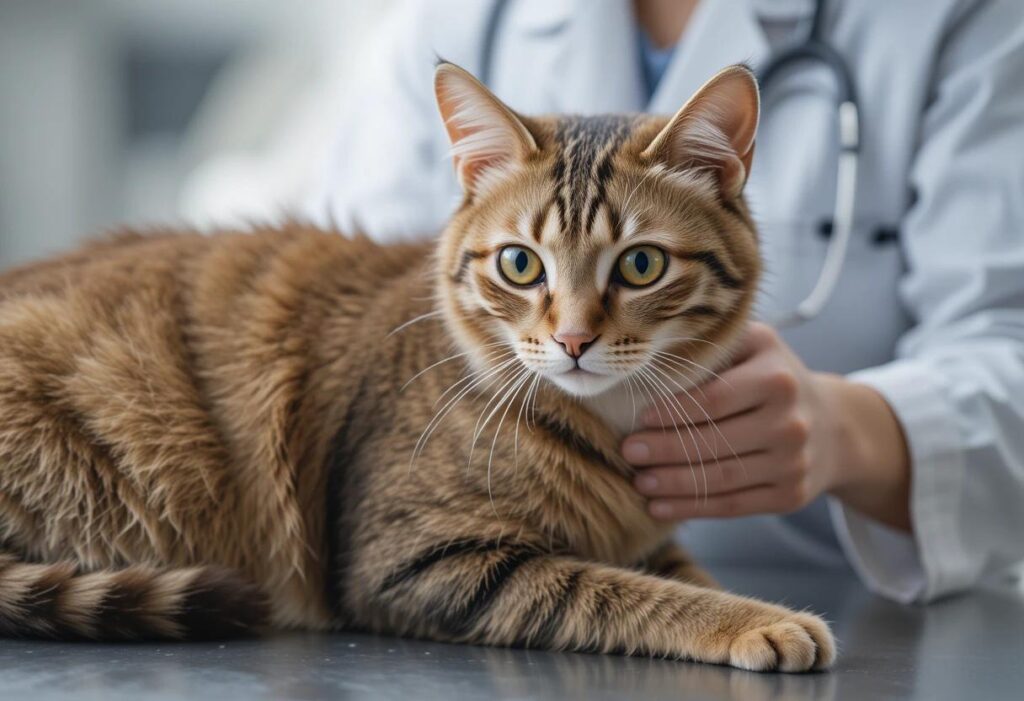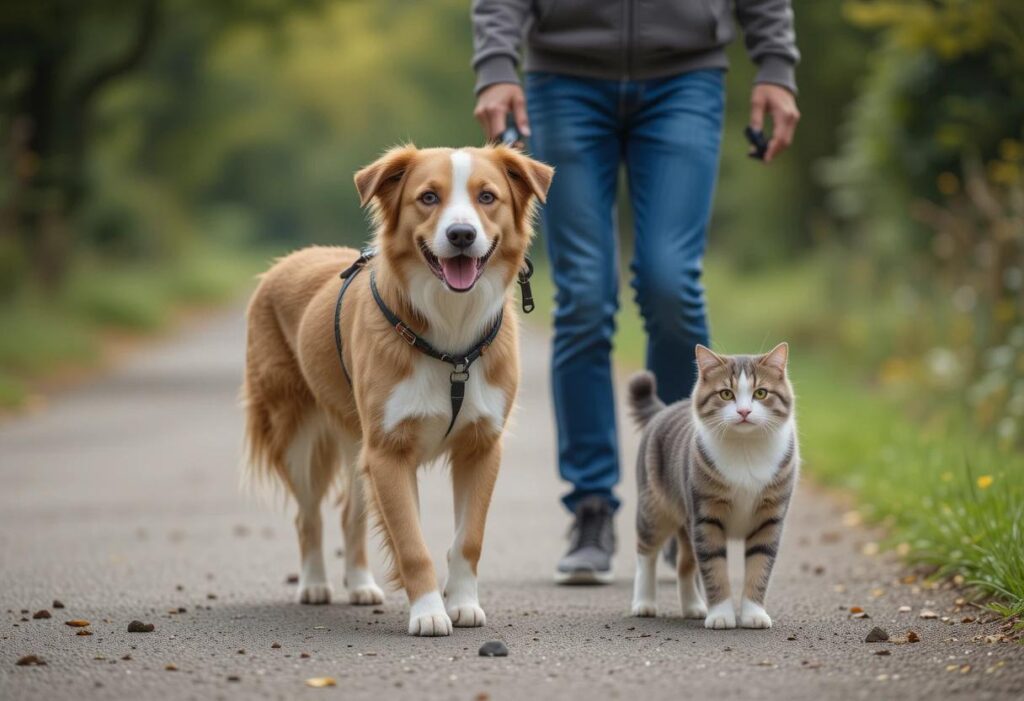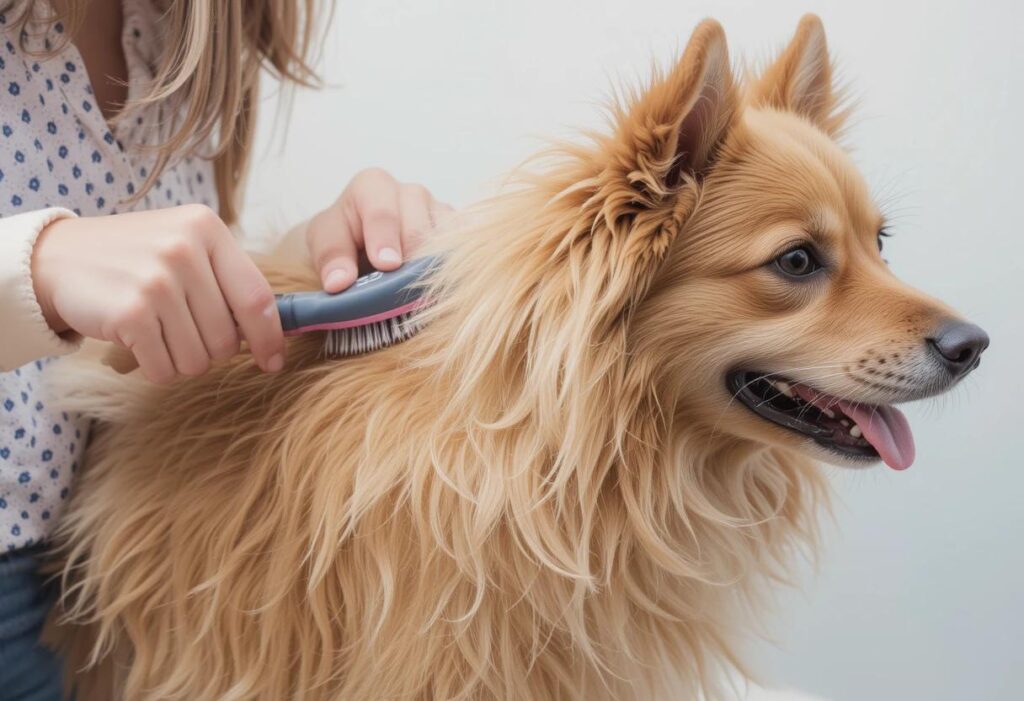Caring for Adult Pets
As your pet grows from a playful puppy or kitten into a mature adult, their care needs evolve. Just like humans, pets experience changes in their health, energy levels, and behaviors as they age. Adult pets require specific care to ensure they stay healthy, happy, and active. Whether you have a dog, cat, or another pet, providing proper nutrition, regular veterinary care, mental stimulation, and exercise is crucial for maintaining their well-being throughout adulthood. In this article, we’ll explore the essential aspects of caring for adult pets and offer practical tips to help them live long, healthy, and joyful lives.
Table of Contents
Understanding Your Adult Pet’s Needs
When pets transition from being young to adult, their body and mind undergo significant changes. Adult pets generally fall into the age range of 1 to 7 years, depending on the species and breed. This stage of life requires more tailored care compared to the energetic days of puppyhood or kittenhood.
Some common changes that happen during adulthood include:
- Slower Metabolism: As pets age, their metabolism can slow down, which may lead to weight gain. Adjusting their diet and activity levels can help prevent obesity.
- Decreased Activity Levels: While adult pets are still playful, they might not have the same energy as they did when they were younger. Regular play and exercise are essential to keep them fit and avoid boredom.
- Potential Health Issues: Certain health problems, such as arthritis, dental disease, and kidney issues, become more common in adult pets. Regular check-ups can help detect these issues early and prevent complications.
Understanding these changes will guide you in providing the best care for your pet during their adult years. The better you understand these shifts, the more effectively you can adjust their care routine.
Essential Health Care for Adult Pets
Maintaining your adult pet’s health goes beyond regular feeding and exercise. It’s about staying proactive with their overall well-being. Here are some essential tips for ensuring your pet remains in the best possible health:
1. Regular Vet Check-ups
Veterinary visits are crucial at any stage of your pet’s life, but they become even more important as they age. Regular check-ups can help detect potential health issues early, such as joint problems, heart disease, or diabetes. Your veterinarian can also monitor their weight and recommend dietary adjustments to maintain a healthy body condition.

Most adult pets should visit the vet at least once a year. However, if your pet is at risk for certain conditions or if you notice changes in their behavior, more frequent visits may be necessary. Early detection can significantly improve treatment outcomes and extend your pet’s life.
Subsequent Health Care for Aging Pets
For senior pets, typically those over the age of 7, more specialized care may be needed. A vet may recommend additional screenings for diseases like cancer or kidney disease, which are more common in older pets. For pets over 10 years old, you may need bi-annual visits instead of annual ones, depending on your vet’s advice.
2. Dental Care
Dental health is often overlooked in pets, but it is vital for their overall well-being. Poor dental hygiene can lead to gum disease, tooth loss, and even affect internal organs. Brushing your pet’s teeth regularly with pet-safe toothpaste can help maintain oral health. Additionally, your veterinarian can perform professional cleanings if necessary.
Oral disease is a significant problem for adult pets. In fact, by the time they’re 3 years old, most pets show signs of periodontal disease. This can cause serious issues if untreated. Brushing your pet’s teeth, offering dental chews, and providing special food designed to improve oral health can be part of an effective routine.
3. Weight Management
As your pet ages, it’s important to monitor their weight closely. Obesity can lead to several health problems, including joint pain, diabetes, and heart disease. Providing a balanced diet that is appropriate for your pet’s age, breed, and activity level is key. Your vet can recommend a suitable diet and portion sizes to help maintain a healthy weight.
Adult pets may also become less active, which can contribute to weight gain. If your pet is overweight, your vet can recommend a tailored plan to help your pet lose weight safely and healthily. This could include changing food portions, exercise plans, and possibly introducing more high-quality, low-calorie treats.
4. Vaccinations and Preventative Care
Adult pets still require vaccinations to prevent infectious diseases. Consult with your vet to ensure that your pet is up-to-date on vaccines such as rabies, distemper, and parvovirus. In addition, preventative treatments for fleas, ticks, and worms are essential, especially if your pet spends time outdoors.
Even if your pet is mostly indoors, parasites like fleas and ticks can find their way into your home. Worms, such as heartworms, can also be a concern, especially in areas where these are common. Monthly preventatives can save you a lot of trouble and keep your pet healthy in the long run.
5. Joint Care
Joint health is another important consideration for adult pets, particularly for larger dog breeds. Related issues like arthritis can develop as pets age, leading to pain and mobility problems. Joint supplements containing glucosamine and chondroitin can help maintain joint health and reduce discomfort. Regular exercise is also essential to keep their muscles strong and joints flexible.
If your pet starts showing signs of limping, stiffness, or difficulty moving, consult with your vet about starting joint supplements or switching to a diet formulated for joint health. Some pets might also benefit from acupuncture or other holistic therapies that help with pain management.
Nutrition for Adult Pets
A well-balanced diet plays a crucial role in maintaining the health of your adult pet. As pets age, their nutritional needs change, so it’s essential to choose food that meets those needs.
1. High-Quality Food
Opt for high-quality pet food that is formulated specifically for adult pets. Look for foods that contain high-quality protein sources, as this helps maintain muscle mass and overall health. Make sure the food is appropriate for your pet’s breed, size, and health status. Some pets may require special diets, such as weight control formulas or foods for pets with sensitive stomachs.
Choosing food that’s specifically made for adult pets ensures it meets their needs for the right balance of nutrients. The right diet can prevent issues such as obesity, nutritional deficiencies, or gastrointestinal issues.
2. Portion Control
Overfeeding is a common mistake in adult pet care. Follow the recommended feeding guidelines on the pet food packaging or consult with your vet to determine the appropriate portion sizes for your pet. Divide their daily food intake into two or more meals to help regulate their metabolism.
Pets don’t always know when to stop eating, so it’s your job to keep track of their portions. Regularly check their body condition, and if they start to gain weight, reduce portions slightly. Likewise, if they seem to be losing weight, consult your vet for recommendations.
3. Fresh Water
Always ensure that your pet has access to fresh water. Dehydration can cause serious health issues, including kidney problems. Keep your pet’s water bowl clean and refill it regularly.
Some pets can be reluctant to drink water, which is why it’s important to encourage hydration. Adding wet food to their diet or using pet water fountains that filter the water can help make water more appealing to them.
Exercise and Mental Stimulation
Exercise is just as important for adult pets as it is for puppies and kittens. While adult pets may not have the boundless energy they had when they were younger, regular exercise is essential for maintaining a healthy weight, muscle tone, and mental health.
1. Daily Walks and Playtime

For dogs, daily walks are a great way to ensure they get enough exercise. Choose a pace and length that suits your dog’s energy level and health. If your dog is older or has joint issues, shorter walks may be more appropriate. You can also engage them in gentle play, such as fetching a ball or playing tug-of-war.
Even indoor cats need regular activity. Engaging them in interactive play sessions with toys, such as feather wands, laser pointers, or puzzle feeders, can keep their minds sharp and their bodies active. Physical activity reduces the risk of obesity, helps them build muscle, and alleviates stress.
2. Socialization
While adult pets may not be as social as they were as puppies or kittens, they still benefit from regular social interaction. Arrange playdates with other pets or take your dog to pet-friendly parks to allow them to interact with others. Socialization helps prevent boredom, anxiety, and behavioral problems.
Pets that don’t get enough socialization can become anxious or aggressive. Regular exposure to other pets and humans is vital to keep them calm and well-adjusted.
3. Mental Stimulation
Just like physical exercise, mental stimulation is important for keeping your pet sharp and happy, especially for adult pets. Training sessions, new toys, or problem-solving activities can engage their brains and keep them from feeling bored or stressed. Puzzle feeders, for example, challenge cats and dogs to work for their food, which can be both fun and rewarding.
Dogs can also enjoy training games or agility exercises, which are both mentally stimulating and physically engaging. Cats, on the other hand, might prefer puzzles that require them to figure out how to release a treat.
Grooming and Hygiene
As your pet enters adulthood, their grooming needs may change. Regular grooming not only keeps your pet looking good but also helps monitor their health. Here are some grooming tips for adult pets:
1. Bathing
Bathing your pet is essential to remove dirt, debris, and loose fur. However, over-bathing can strip their coat of natural oils, so it’s important to find a bathing routine that works for your pet. Typically, adult pets only need a bath every 4 to 6 weeks, but this can vary based on their breed and lifestyle.
2. Brushing
Regular brushing helps prevent matting, reduces shedding, and keeps your pet’s coat healthy. Long-haired pets, such as Persian cats or Afghan Hounds, may require more frequent brushing, while short-haired pets like Beagles or domestic shorthair cats may only need a weekly brushing session.

3. Ear Cleaning and Nail Trimming
Ear infections can develop in pets, especially in those with floppy ears. Regularly check and clean your pet’s ears to prevent wax buildup and infection. Nail trimming is another essential grooming task that helps prevent painful overgrown nails and promotes overall paw health.
Emotional Well-being and Bonding
Ensuring your pet’s emotional happiness is just as important as their physical health. Adult pets can suffer from anxiety, stress, or loneliness, especially if their environment changes or they don’t receive enough attention.
1. Affection and Attention
Spending quality time with your pet is essential for their emotional well-being. Petting, cuddling, or simply sitting together can strengthen your bond and provide reassurance. Dogs, in particular, thrive on companionship, and regular attention can help them feel secure.
2. Creating a Comfortable Environment
Make sure your pet has a quiet, comfortable space to relax. Adult pets often appreciate a cozy bed or designated resting area where they can retreat when they need a break. A calm environment reduces stress and helps your pet feel safe.
3. Consistency and Routine
Pets, especially dogs, benefit from having a predictable routine. Consistent feeding times, play sessions, and walks help reduce anxiety and create a sense of stability.
Final Thoughts
Caring for adult pets requires a thoughtful approach that addresses their changing physical, emotional, and mental needs. By providing proper nutrition, regular veterinary care, exercise, and affection, you can help your pet live a long, healthy, and happy life. Remember, the bond you share with your pet grows even stronger as they mature, and providing the right care is the best way to show them just how much you love them.
Ready to Become the Best Dog Parent Ever?
Is Your Dog Ready to Live Their Best Life?
Ready to Become the Best Cat Parent Ever?
FAQs
- How do I know if my pet is getting old?
When pets start getting older, they might show some changes in how they act and feel. For example, they might sleep more than they did when they were younger, or they may not be as excited to run and play. You might also notice that they seem a little slower when they walk, or they might have trouble jumping on the couch or going up stairs. Some older pets also don’t eat as much or may not be interested in playing with their favorite toys anymore. It’s important to pay attention to these changes, so you can help them stay comfortable. - How can I help my pet stay healthy as they get older?
To help your pet stay healthy, you should make sure they eat the right food, get regular exercise, and visit the vet for check-ups. You also want to keep their teeth clean and make sure they don’t get too overweight. - Should I change my pet’s food when they become an adult?
Yes! As your pet gets older, they may need different food. There are special adult pet foods that are made just for older pets to keep them healthy and strong. - How often should I take my adult pet to the vet?
Most adult pets should visit the vet at least once a year. But if your pet is older or has health problems, your vet might want to see them more often to check on things. - What kind of exercise does my adult pet need?
Your adult pet still needs regular exercise, but it might not be as intense as when they were younger. For dogs, you can take them on walks or play fetch. Cats like to chase toys or run around. Make sure to adjust the exercise to how your pet is feeling. - Can my adult pet get sick more easily?
Yes, older pets can be more likely to get sick, especially if they have health problems like arthritis or dental issues. That’s why it’s important to take them to the vet regularly and keep an eye on their health. - How do I know if my pet is in pain?
If your pet seems more tired than usual, is limping, or has trouble jumping or climbing stairs, they might be in pain. It’s important to talk to your vet if you think something might be wrong. - What should I do if my pet is overweight?
If your pet is overweight, try feeding them smaller portions, making sure they eat the right food, and giving them more exercise. Your vet can also help you create a plan to get your pet back to a healthy weight. - Can my pet still learn new tricks when they are adults?
Yes! Adult pets can still learn new tricks. They might not learn as fast as they did when they were younger, but with patience and positive rewards, they can still have fun learning new things. - How can I keep my pet’s teeth healthy?
Brushing your pet’s teeth regularly is important to keep them clean. You can also give them special dental treats or toys that help clean their teeth. Regular check-ups with the vet can also help prevent dental problems.
Guide to Choosing the Right Food, Feeding Schedules, and Nutrition for Dogs and Cats

